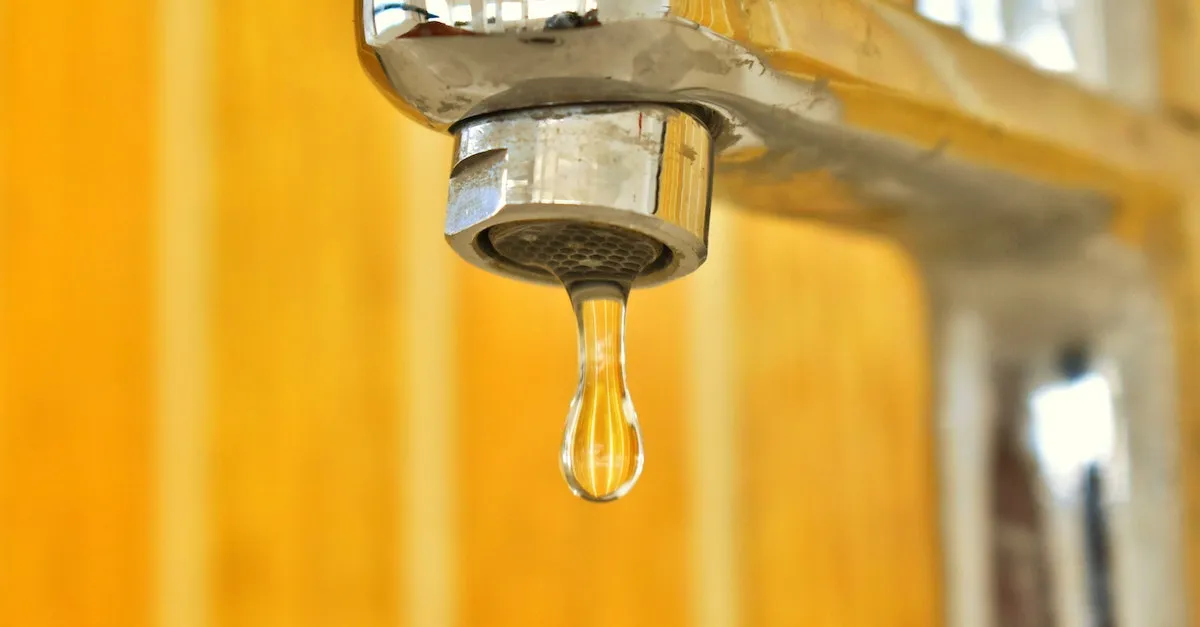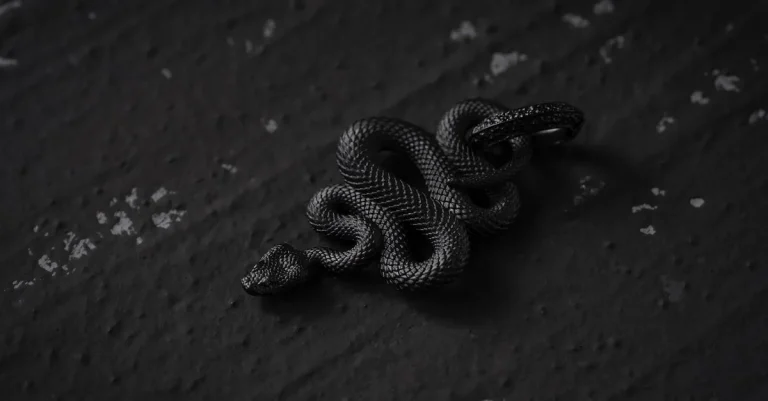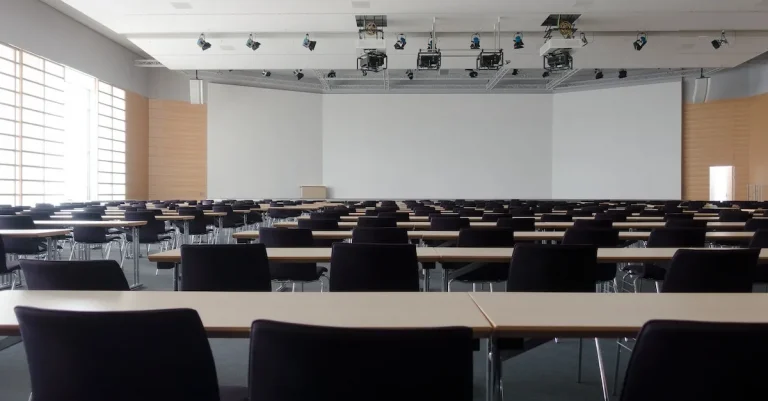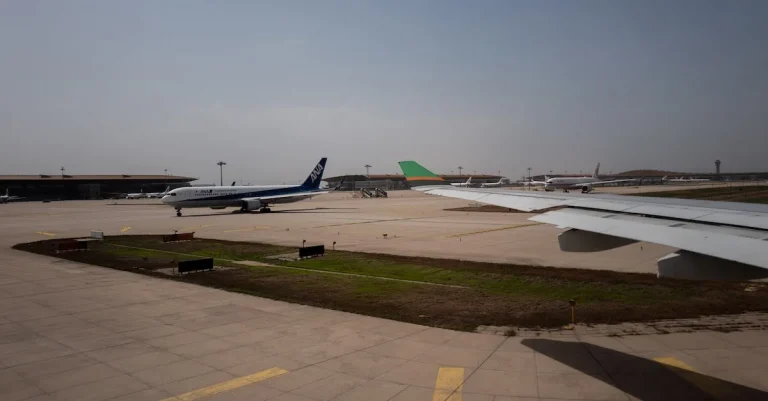Can You Drink Las Vegas Tap Water? Everything You Need To Know
With its desert location and reliance on the Colorado River, Las Vegas is not necessarily known for having the best tasting tap water. If you’re visiting Sin City and wondering whether it’s safe to drink from the tap, this in-depth guide has got you covered.
If you’re short on time, here’s a quick answer to your question: Yes, Las Vegas tap water is generally safe to drink, though the quality and taste can vary across different parts of the city.
In this approximately 3000 word article, we’ll dive into topics like:
– The sources of Las Vegas tap water and how it’s treated
– Regional differences in water taste and quality within Las Vegas
– Comparing tap vs. bottled water in Vegas
– Potential contaminants to watch out for
– Tips for improving the taste of Vegas tap water
– Is the water in Vegas hotels and casinos safe to drink?
Where Does Las Vegas Get Its Tap Water?
Las Vegas, known as the Entertainment Capital of the World, gets its tap water from various sources, ensuring that residents and visitors have access to clean and safe drinking water. The primary source of tap water in Las Vegas is the Colorado River, which supplies water to several states in the western United States.
The Colorado River
The Colorado River is a vital water source for Las Vegas, providing water for drinking, irrigation, and other essential purposes. The river flows through several states, including Colorado, Wyoming, Utah, New Mexico, Nevada, Arizona, and California.
Las Vegas gets a significant portion of its water supply from the Colorado River through a complex system of dams and reservoirs.
Lake Mead
One of the key reservoirs that stores water from the Colorado River is Lake Mead. Located just outside of Las Vegas, Lake Mead is the largest reservoir in the United States in terms of water capacity. It serves as a crucial water source for the city, providing a substantial amount of the tap water used by residents and businesses.
Water Treatment Process
Before it reaches your tap, the water from the Colorado River and Lake Mead undergoes a rigorous treatment process to ensure its safety and quality. The Southern Nevada Water Authority (SNWA) is responsible for treating and delivering water to the Las Vegas Valley.
The treatment process includes several steps, such as coagulation, sedimentation, filtration, and disinfection. During coagulation, chemicals are added to the water to help solid particles clump together. The water then goes through sedimentation, where these particles settle to the bottom.
Next, the water passes through filters to remove any remaining impurities. Finally, disinfection is carried out using chlorine or other disinfectants to kill any remaining pathogens.
The treated water is continuously monitored to ensure that it meets or exceeds the water quality standards set by the Environmental Protection Agency (EPA). The SNWA also conducts regular tests to ensure that the water is safe for consumption.
It’s important to note that the quality of tap water can vary depending on factors such as the source of the water and the treatment process. However, the water in Las Vegas meets all federal and state drinking water standards and is considered safe to drink.
For more information about Las Vegas tap water and the water treatment process, you can visit the Southern Nevada Water Authority website.
Does Tap Water Taste Different Across Las Vegas?
Las Vegas, known for its vibrant nightlife and entertainment, is also home to a diverse range of tap water flavors. The taste of tap water can vary depending on the location in Las Vegas and the water provider serving that area.
The Strip vs. Suburbs
When it comes to tap water taste, there can be noticeable differences between the Las Vegas Strip and the surrounding suburbs. The water on the Strip is sourced from the Las Vegas Valley Water District (LVVWD) and undergoes extensive treatment processes to ensure its quality.
As a result, the tap water on the Strip is generally considered safe to drink and has a clean and refreshing taste.
On the other hand, tap water in the suburbs of Las Vegas, which is supplied by various water providers such as the Southern Nevada Water Authority (SNWA) and local municipalities, may have a slightly different taste.
Factors such as the source of the water, treatment methods, and infrastructure can contribute to variations in taste.
Differences by Water Provider
Each water provider in Las Vegas has its own unique characteristics that can influence the taste of tap water. For example, SNWA utilizes a blend of water from the Colorado River and local groundwater sources.
This combination can result in a distinctive taste that some people may find different from other areas.
Other water providers, such as the Henderson Water Utility and the North Las Vegas Utilities Department, also play a role in delivering tap water to their respective areas. They may have their own treatment processes and sources of water, which can contribute to variations in taste.
If you’re curious about the specific taste of tap water in your area, you can contact your local water provider or visit their website for more information. They may provide details about the water sources and treatment processes, giving you a better understanding of why the tap water tastes the way it does.
It’s important to note that while tap water in Las Vegas is generally safe to drink, some people may prefer the taste of filtered or bottled water. If you have any concerns about the quality or taste of your tap water, it’s always a good idea to consult with a water expert or consider using a water filtration system.
Tap Water vs. Bottled Water in Las Vegas: Which Is Better?
Tap Water Safety
When it comes to tap water safety in Las Vegas, residents and visitors can rest assured that the water meets or exceeds all federal and state drinking water standards. The Southern Nevada Water Authority (SNWA) ensures that the water is treated and tested regularly to ensure its quality.
In fact, Las Vegas tap water has won numerous awards for its taste and quality.
According to the SNWA, the water is sourced from Lake Mead, treated at state-of-the-art facilities, and then delivered to homes and businesses through a vast network of pipes. The water goes through rigorous testing for contaminants such as bacteria, chemicals, and heavy metals to ensure it is safe to drink.
Bottled Water Regulations
While tap water in Las Vegas is regulated by the Environmental Protection Agency (EPA) and the Nevada Division of Environmental Protection, the regulations for bottled water are governed by the Food and Drug Administration (FDA).
Bottled water companies must meet FDA standards to ensure the safety and quality of their products.
The FDA requires bottled water companies to test their water for various contaminants, including bacteria, chemicals, and heavy metals. However, it is important to note that the regulations for bottled water are not as stringent as those for tap water.
In some cases, tap water may actually be held to higher standards than bottled water.
Environmental Considerations
Choosing tap water over bottled water can have significant environmental benefits. Bottled water production requires the use of plastic bottles, which contribute to plastic waste and pollution. According to the Environmental Protection Agency, only about 30% of plastic bottles are recycled, meaning the majority end up in landfills or as litter.
On the other hand, tap water is delivered through a centralized system, reducing the need for single-use plastic bottles. By using a reusable water bottle and opting for tap water, individuals can make a positive impact on the environment by reducing plastic waste.
Cost Comparison
From a cost perspective, tap water is the clear winner. In Las Vegas, tap water costs a fraction of a cent per gallon, making it significantly cheaper than bottled water. In fact, bottled water can cost up to 2,000 times more than tap water.
According to a study conducted by the Environmental Working Group, individuals who exclusively drink bottled water can spend up to $1,400 per year, while those who drink tap water spend less than $1 per year.
What to Know About Las Vegas Tap Water Contaminants
Lead
Lead contamination in tap water is a concern worldwide, and Las Vegas is no exception. While the water treatment plants in Las Vegas work hard to ensure the water is safe to drink, there is a possibility of lead leaching into the water from older plumbing systems.
It is important to note that the majority of homes in Las Vegas do not have lead plumbing, but if you live in an older house, it is advisable to have your water tested for lead to ensure its safety. The Environmental Protection Agency (EPA) provides guidelines on how to test your water for lead, and local water testing laboratories can also assist you with this process.
Remember, taking precautions, such as using a water filter certified to remove lead, can provide an extra layer of protection.
Chlorine
Chlorine is commonly used in water treatment plants to disinfect tap water and remove harmful bacteria and viruses. While it is an effective method to ensure water safety, it can also result in an unpleasant taste and odor.
However, the chlorine levels in Las Vegas tap water are within the EPA’s permissible limits, and it is considered safe to drink. If you find the taste or smell of chlorine bothersome, you can use a water filter or let the water sit in an open container for a few hours to allow the chlorine to dissipate.
Radon
Radon is a naturally occurring radioactive gas that can dissolve into groundwater. While it is not typically found in high concentrations in Las Vegas tap water, it is still important to be aware of its presence.
The EPA recommends that homeowners test their homes for radon gas and take appropriate measures to reduce its levels if necessary. If you are concerned about radon in your tap water, you can contact a local water testing laboratory for assistance.
Arsenic
Arsenic is a naturally occurring element that can be found in groundwater sources. In Las Vegas, the levels of arsenic in tap water are well below the EPA’s maximum contaminant level. The Southern Nevada Water Authority regularly tests the water supply to ensure it meets the required safety standards.
It is important to note that prolonged exposure to high levels of arsenic can have health implications, so it is always advisable to follow the guidelines set by the EPA and the local water authority.
Other Chemicals
In addition to lead, chlorine, radon, and arsenic, there may be other chemicals present in Las Vegas tap water. These chemicals can vary depending on factors such as the water source and treatment process.
The Southern Nevada Water Authority provides consumers with an annual water quality report, which includes information about the presence of any contaminants in the tap water. It is recommended that residents of Las Vegas review this report to stay informed about the quality of their tap water.
Improving the Taste of Las Vegas Tap Water
While Las Vegas tap water is generally safe to drink, some people may find its taste less appealing. However, there are several simple methods you can try to improve the taste and make it more enjoyable.
Getting Used to the Taste
One option is to give yourself some time to acclimate to the taste of Las Vegas tap water. Like with any new water source, it may take a few sips for your taste buds to adjust. Sometimes, what initially seems unpleasant can become more tolerable or even enjoyable over time.
Using a Water Filter
Another effective way to enhance the taste of tap water is by using a water filter. These filters are designed to remove impurities and contaminants, improving both the quality and flavor of the water.
There are various types of filters available, such as pitcher filters, faucet-mounted filters, and under-sink filters. They are convenient and easy to use, providing you with clean and better-tasting water.
Adding Lemon or Cucumber
For a refreshing twist, you can add a slice of lemon or cucumber to your glass of tap water. Not only will this give it a hint of flavor, but it can also help mask any unwanted taste. Lemons and cucumbers are natural flavor enhancers and can make your water more enjoyable to drink.
Plus, they provide a boost of vitamin C and hydration.
Trying Chilled or Hot Water
Temperature can also have an impact on the taste of water. If you find Las Vegas tap water less than ideal, you can try drinking it chilled or hot. Some people find that cooling the water in the refrigerator or adding ice cubes can make it taste better.
On the other hand, others prefer drinking it hot, as it can help diminish any subtle flavors they may find unappealing.
Remember, taste preferences can vary from person to person, so it’s important to find the method that works best for you. By using a water filter, adding a slice of lemon or cucumber, or adjusting the temperature, you can enhance the taste of Las Vegas tap water and enjoy it to the fullest.
Is the Water in Las Vegas Hotels and Casinos Safe to Drink?
When visiting Las Vegas, one of the concerns that many people have is the quality and safety of the tap water in hotels and casinos. After all, staying hydrated is essential, especially in the hot desert climate. The good news is that the water in Las Vegas is generally safe to drink.
The city’s water supply comes from Lake Mead, which is treated and monitored by the Southern Nevada Water Authority to ensure its quality.
Water Quality Testing
To maintain the safety of the tap water, the Southern Nevada Water Authority conducts regular water quality testing. They check for various contaminants, including bacteria, viruses, and chemicals, to ensure that the water meets or exceeds federal and state standards.
Additionally, they use advanced filtration and disinfection processes to further enhance the water’s quality.
According to the most recent water quality report published by the Southern Nevada Water Authority, the tap water in Las Vegas meets all federal and state drinking water standards. This report provides detailed information on the water quality, including the levels of different contaminants and substances found in the water.
Considerations for Each Major Hotel
While the tap water in Las Vegas is generally safe to drink, it’s worth considering the specific conditions in each major hotel. Some hotels may have older plumbing systems or use different filtration methods, which can affect the taste and quality of the water.
However, it’s important to note that even if the taste may vary, it does not necessarily mean that the water is unsafe.
For specific information about the water quality in each hotel, it’s recommended to check with the hotel directly. They can provide details about their water sources, treatment processes, and any additional filtration systems they may have in place.
It’s also worth mentioning that many hotels and casinos in Las Vegas offer complimentary bottled water in guest rooms. This provides an alternative option for those who may prefer to drink bottled water during their stay.
Conclusion
While Las Vegas tap water is considered safe to drink by regulatory standards, its source and treatment can affect the taste and quality compared to other cities. There are also some variations depending on your location in the Vegas Valley.
If you’re not a fan of the tap water taste, there are alternatives like filtration or bottled water. But with some preparation and knowledge, drinking from the tap in Vegas is certainly possible.








